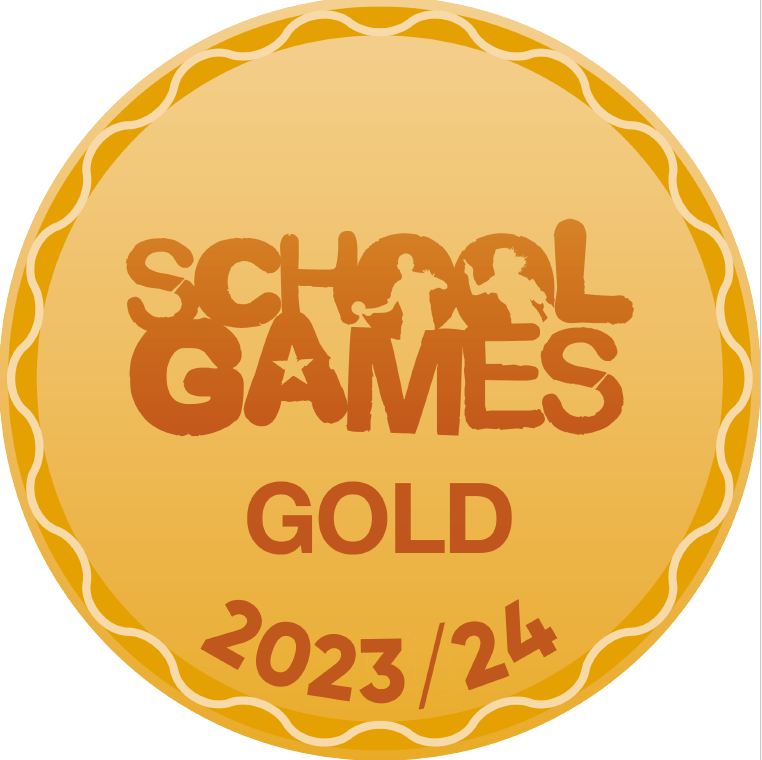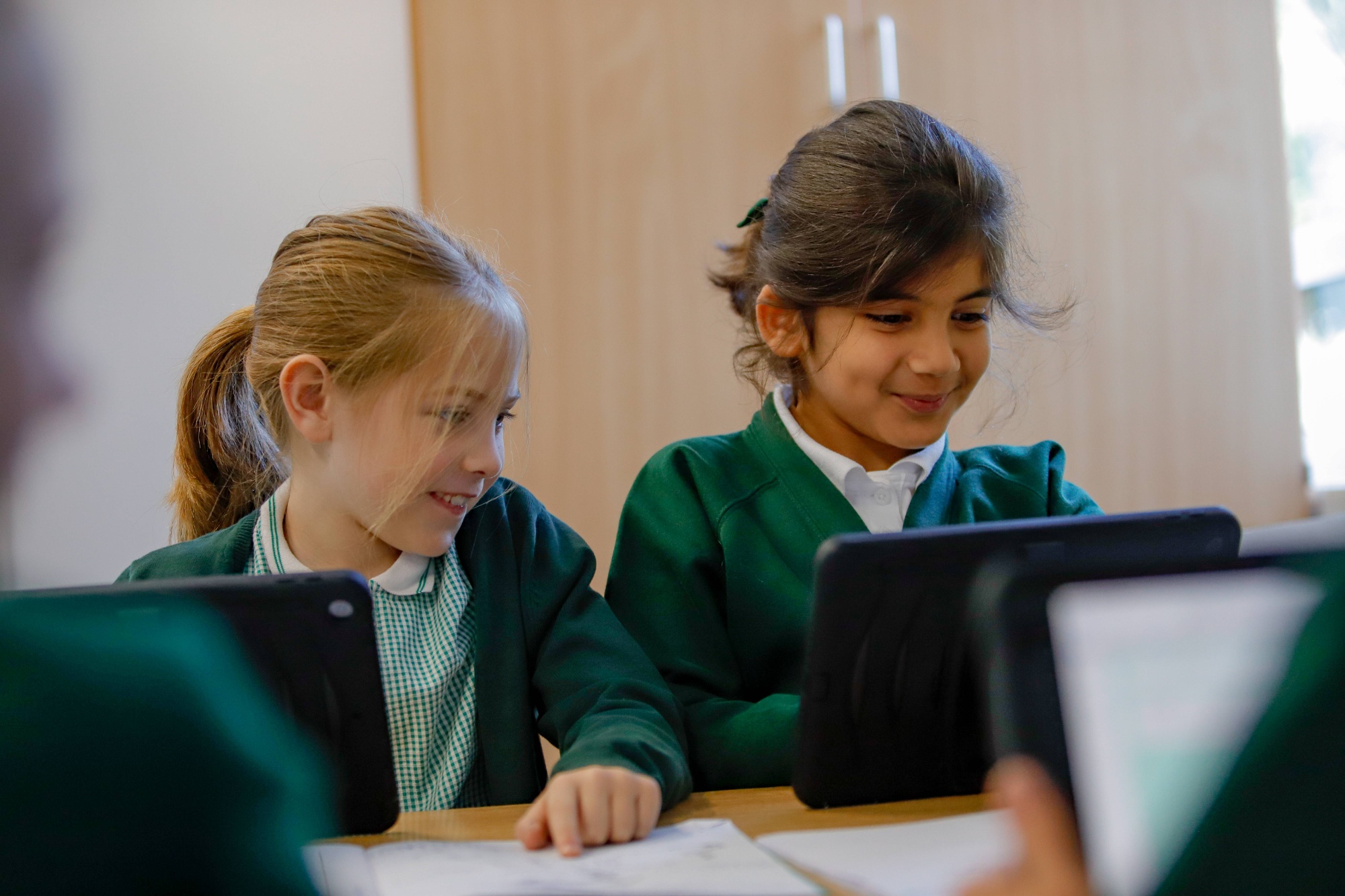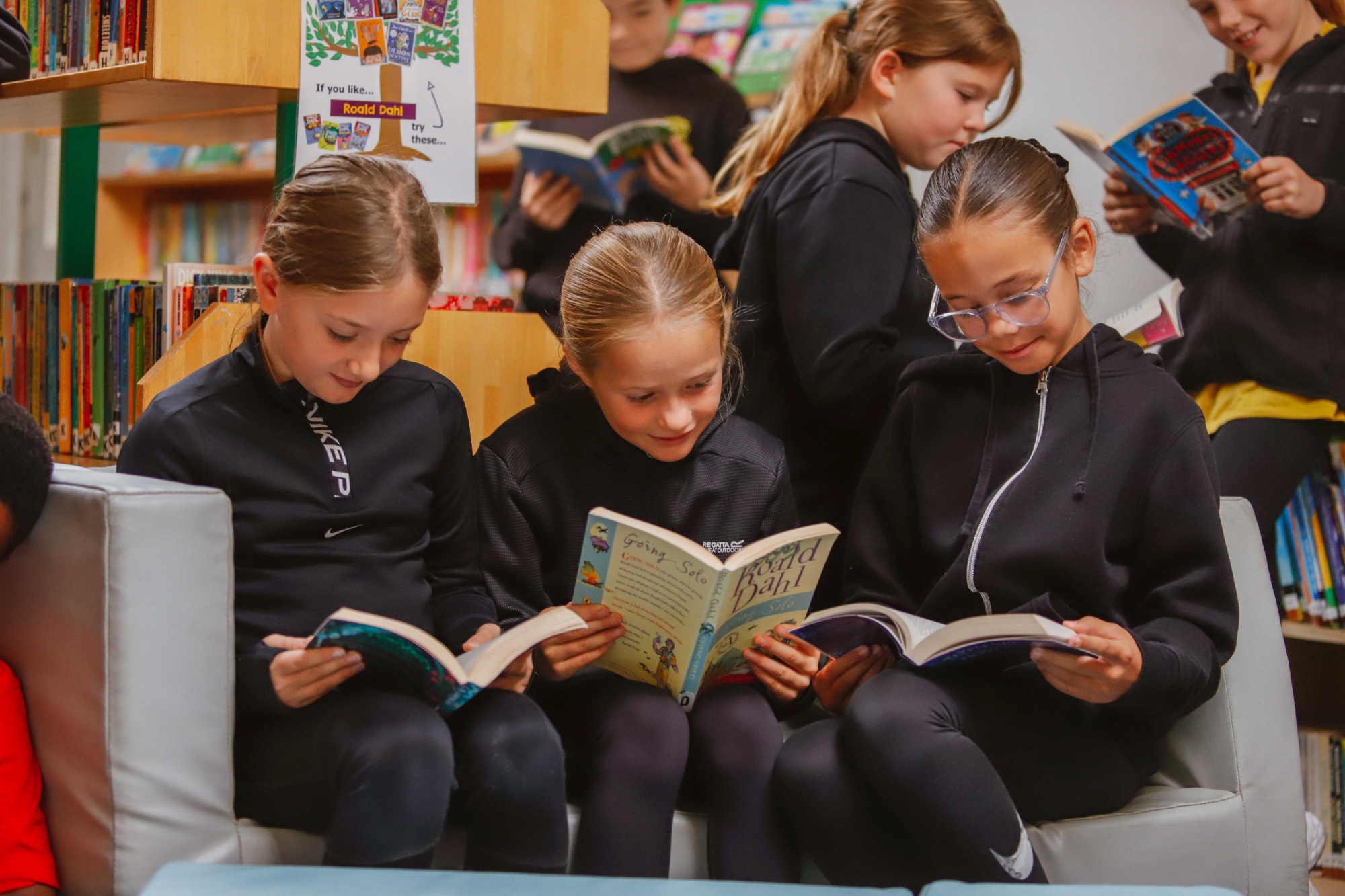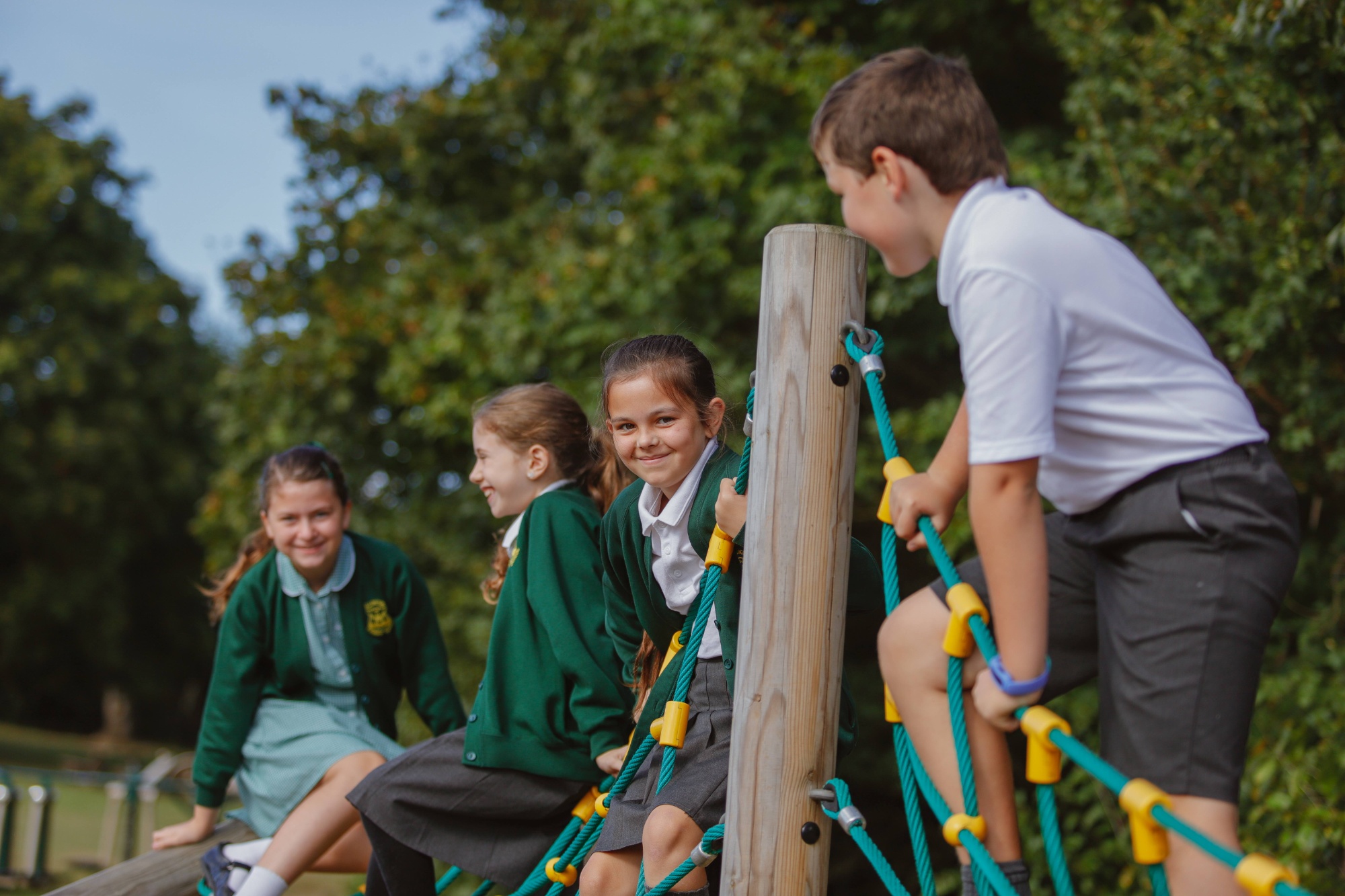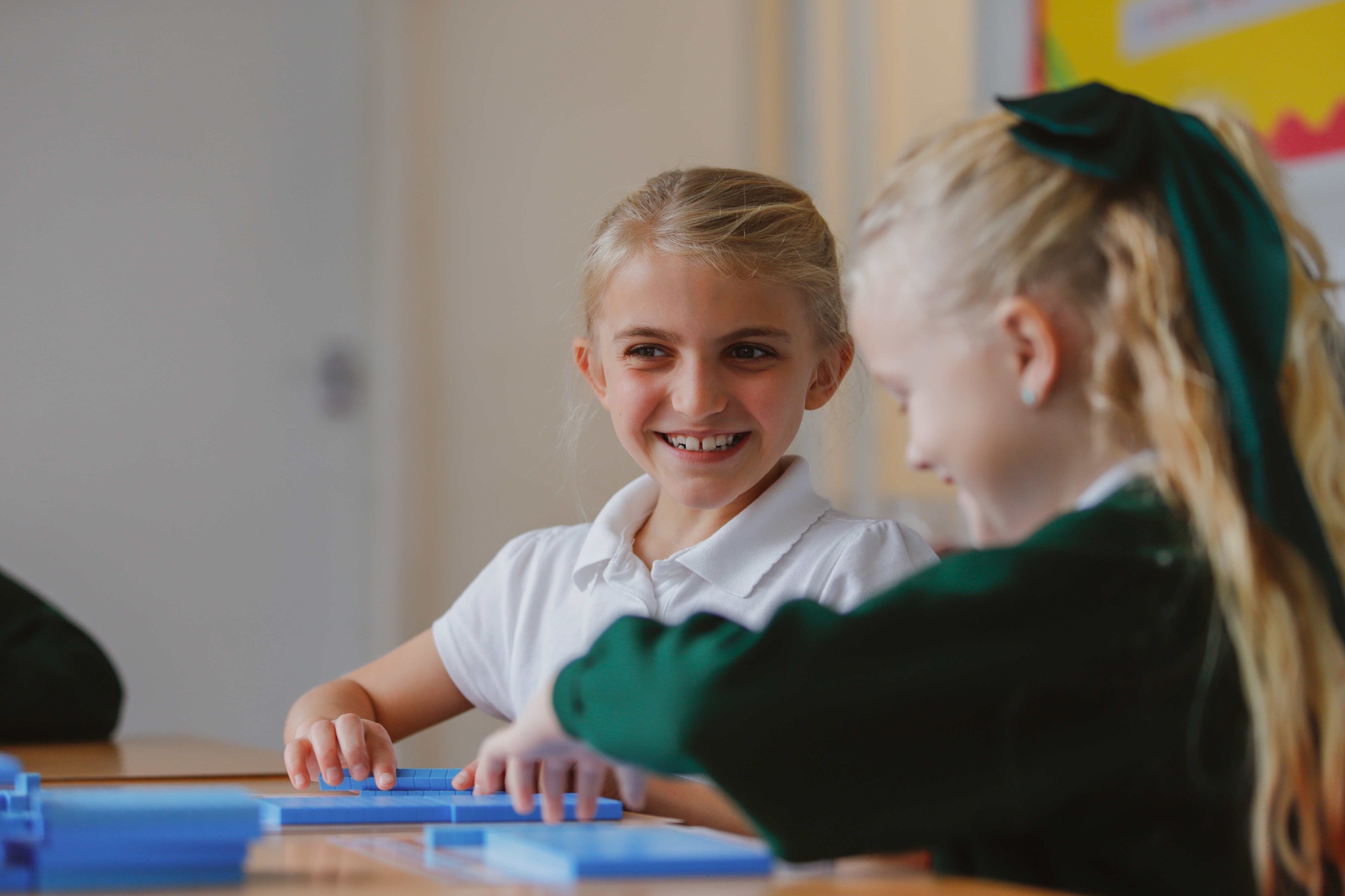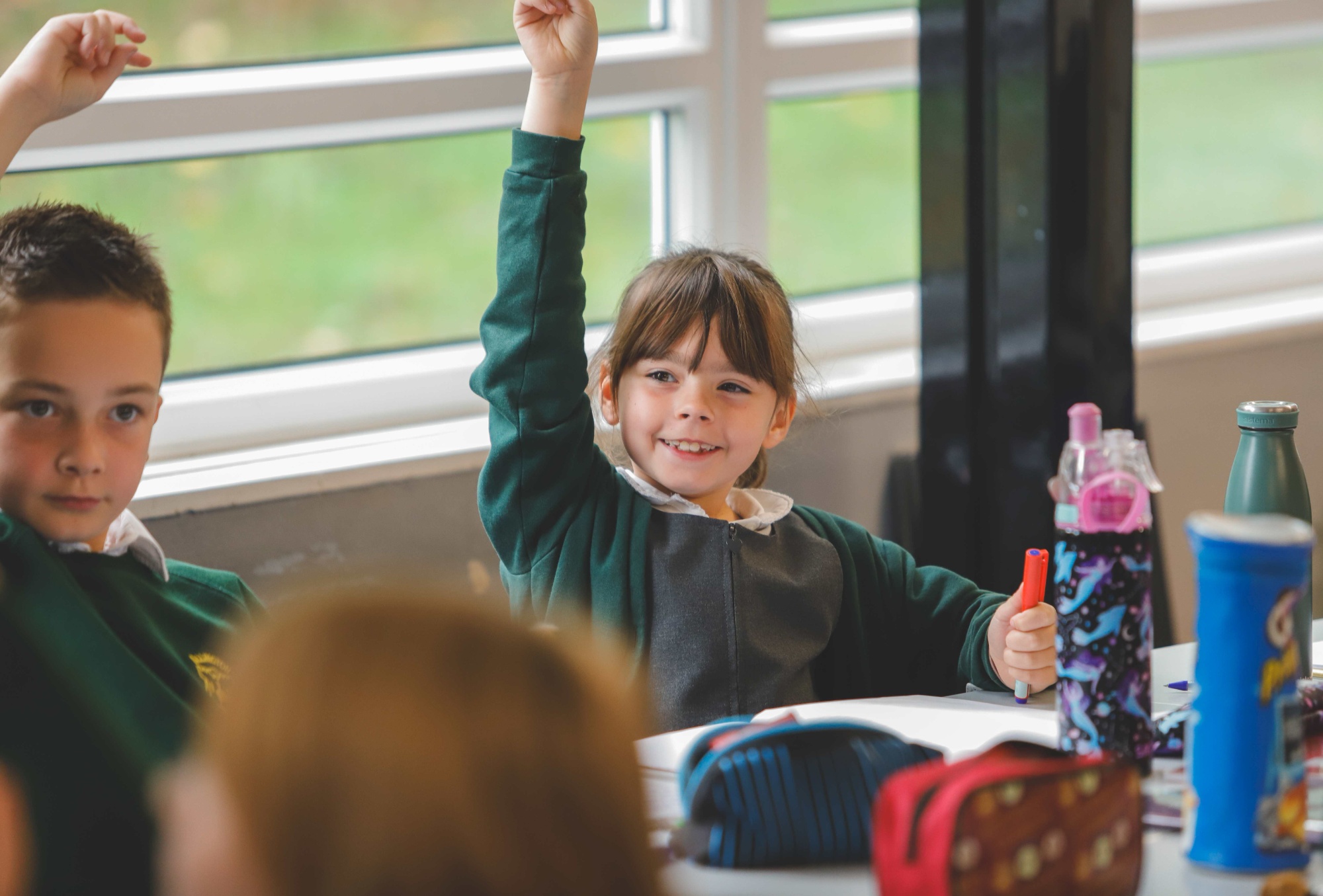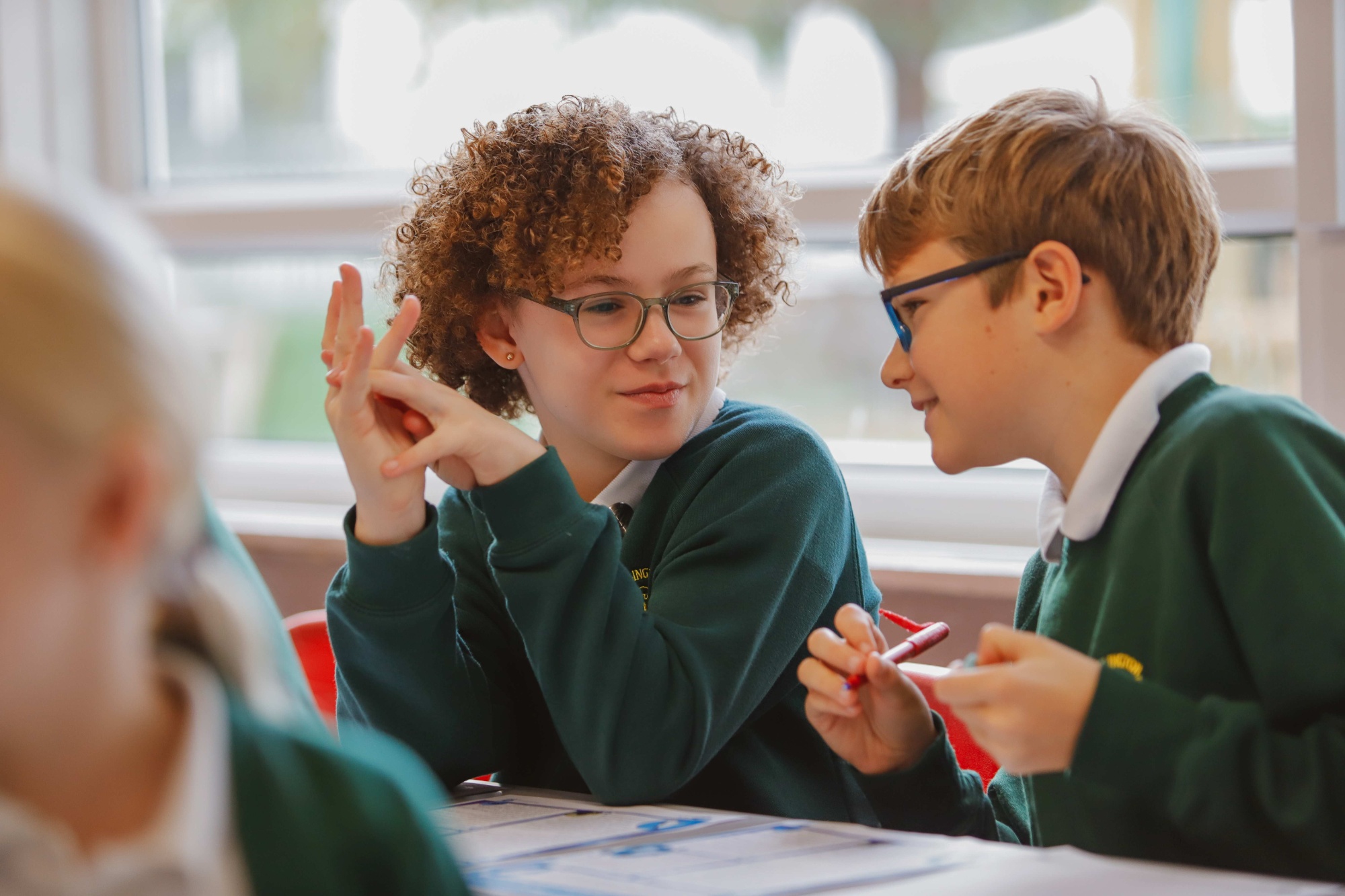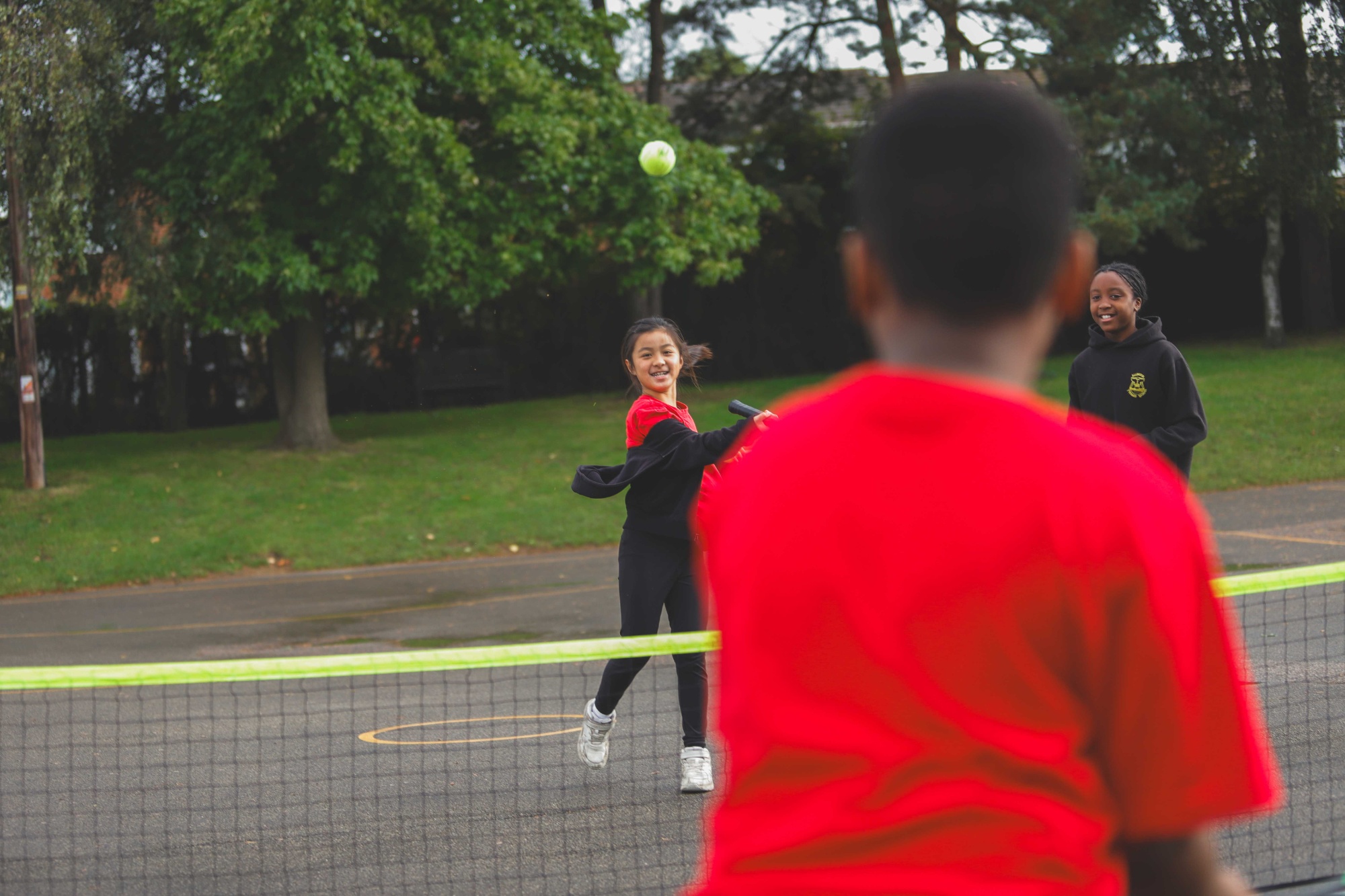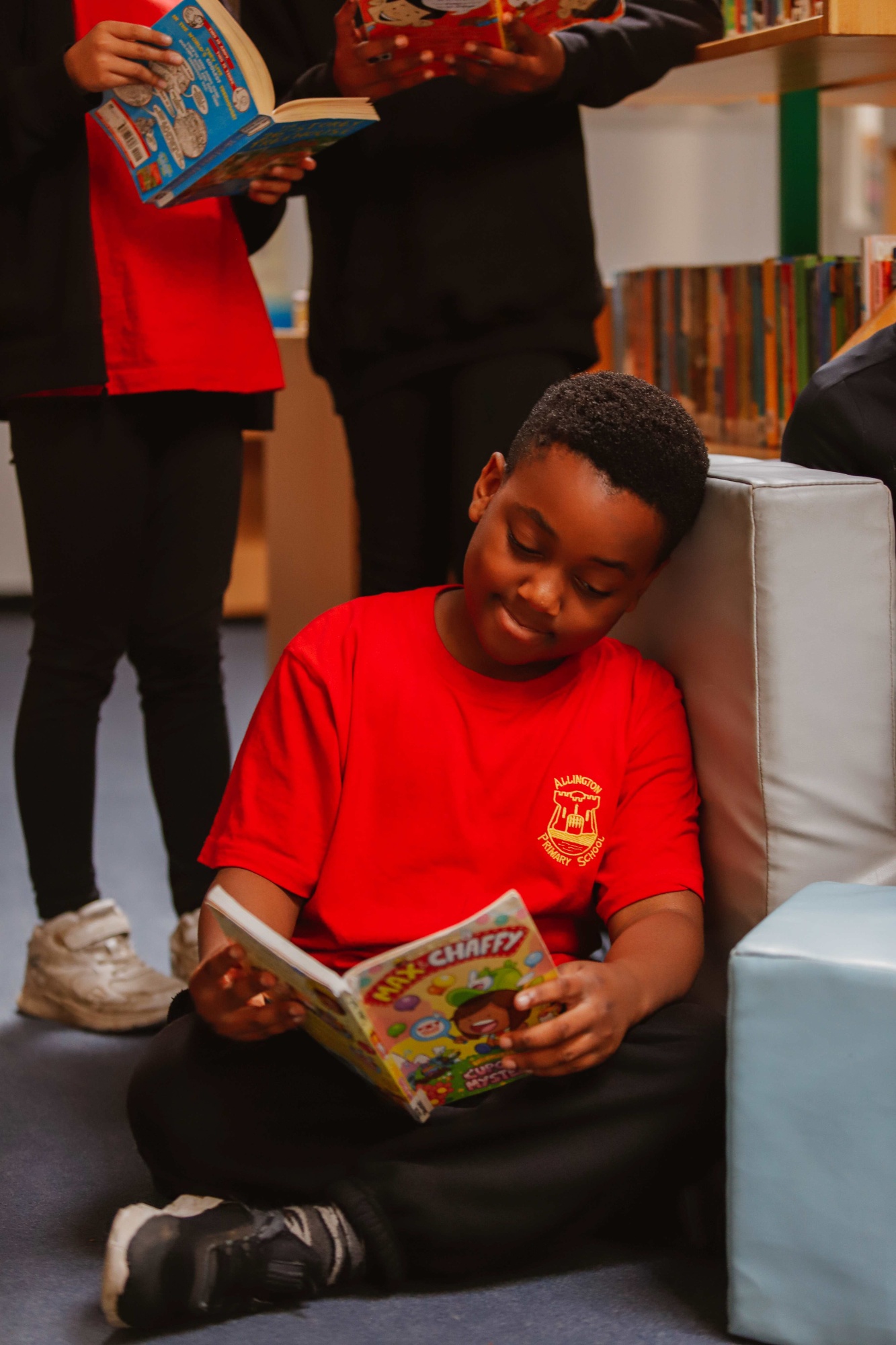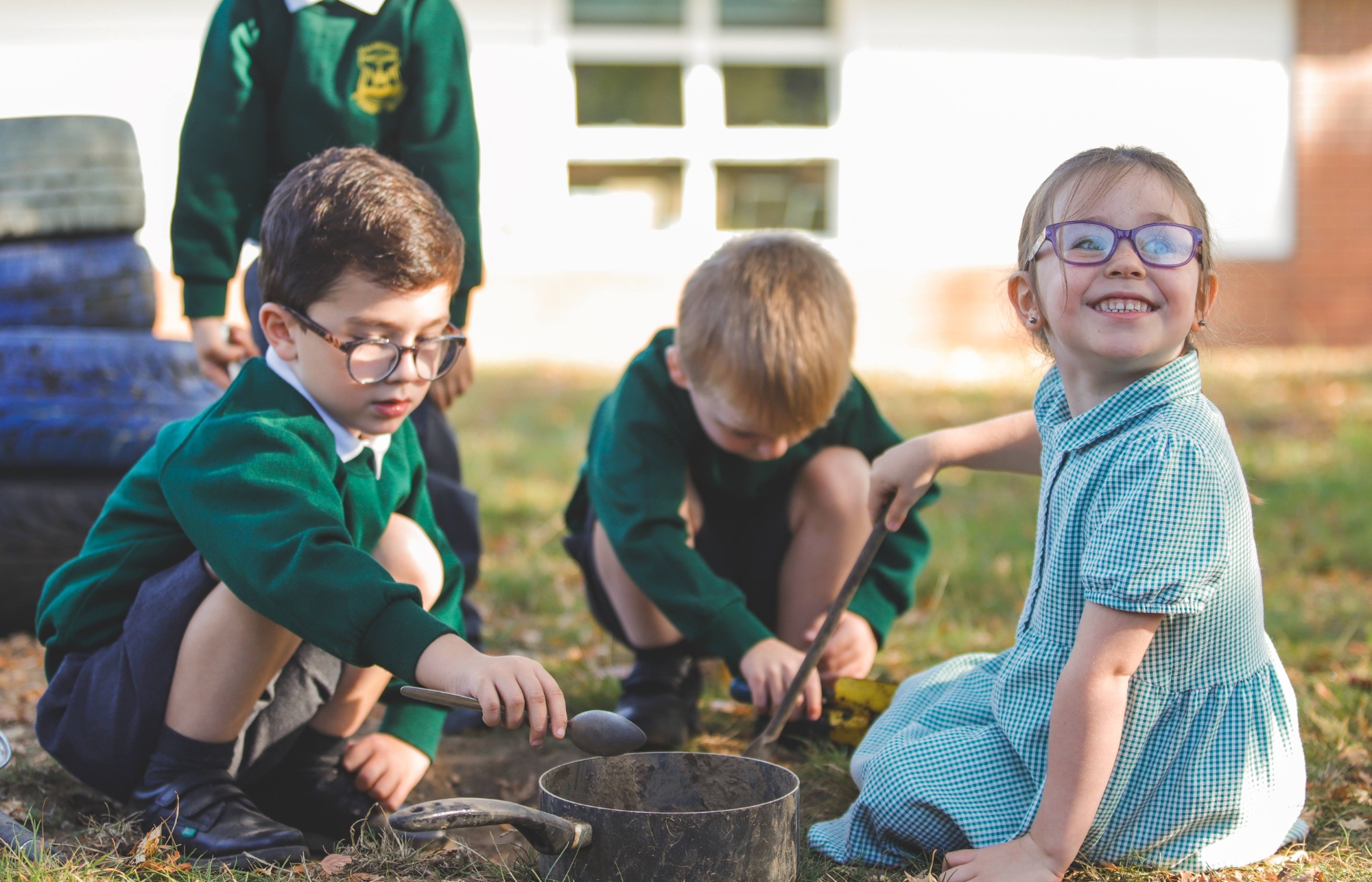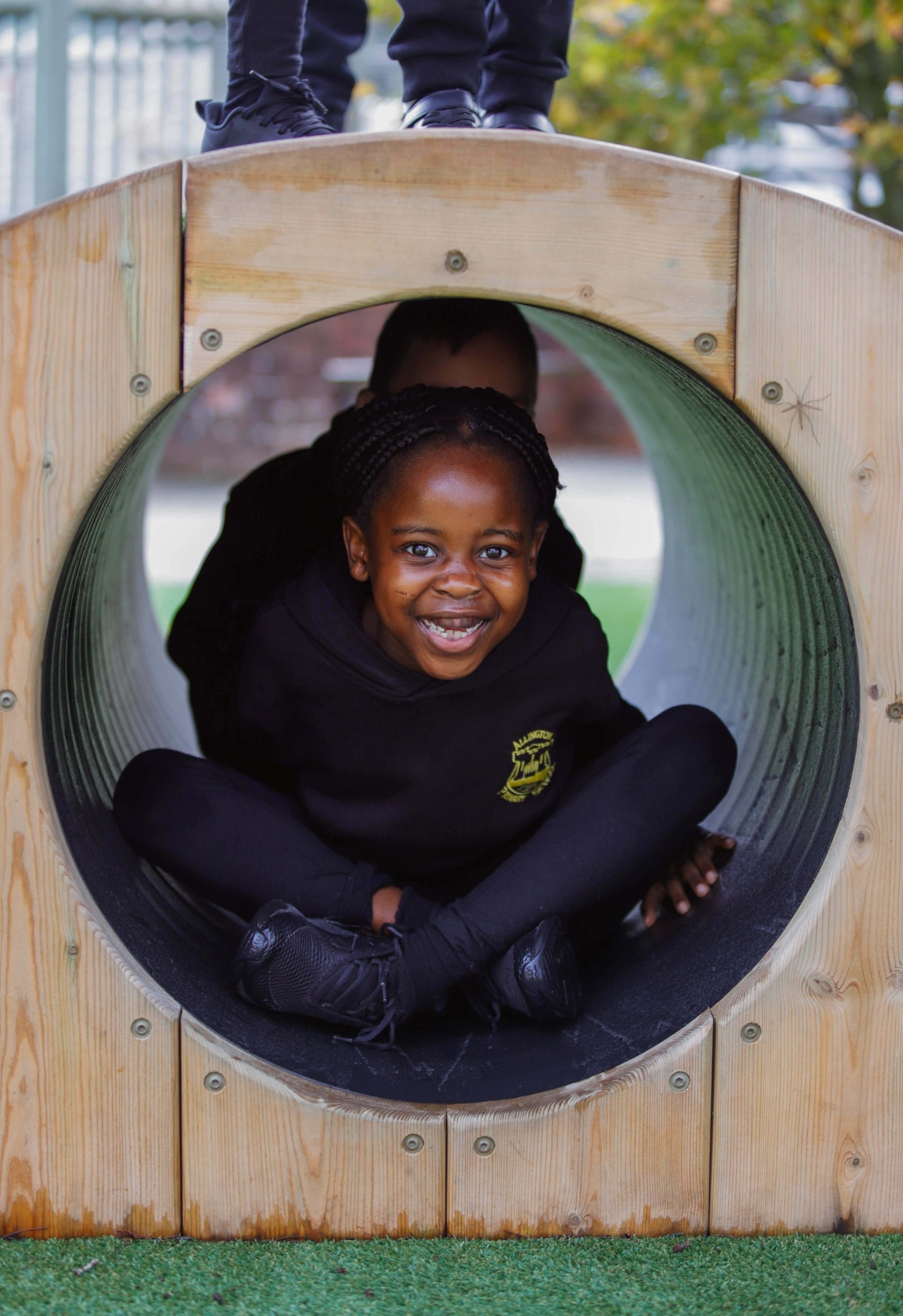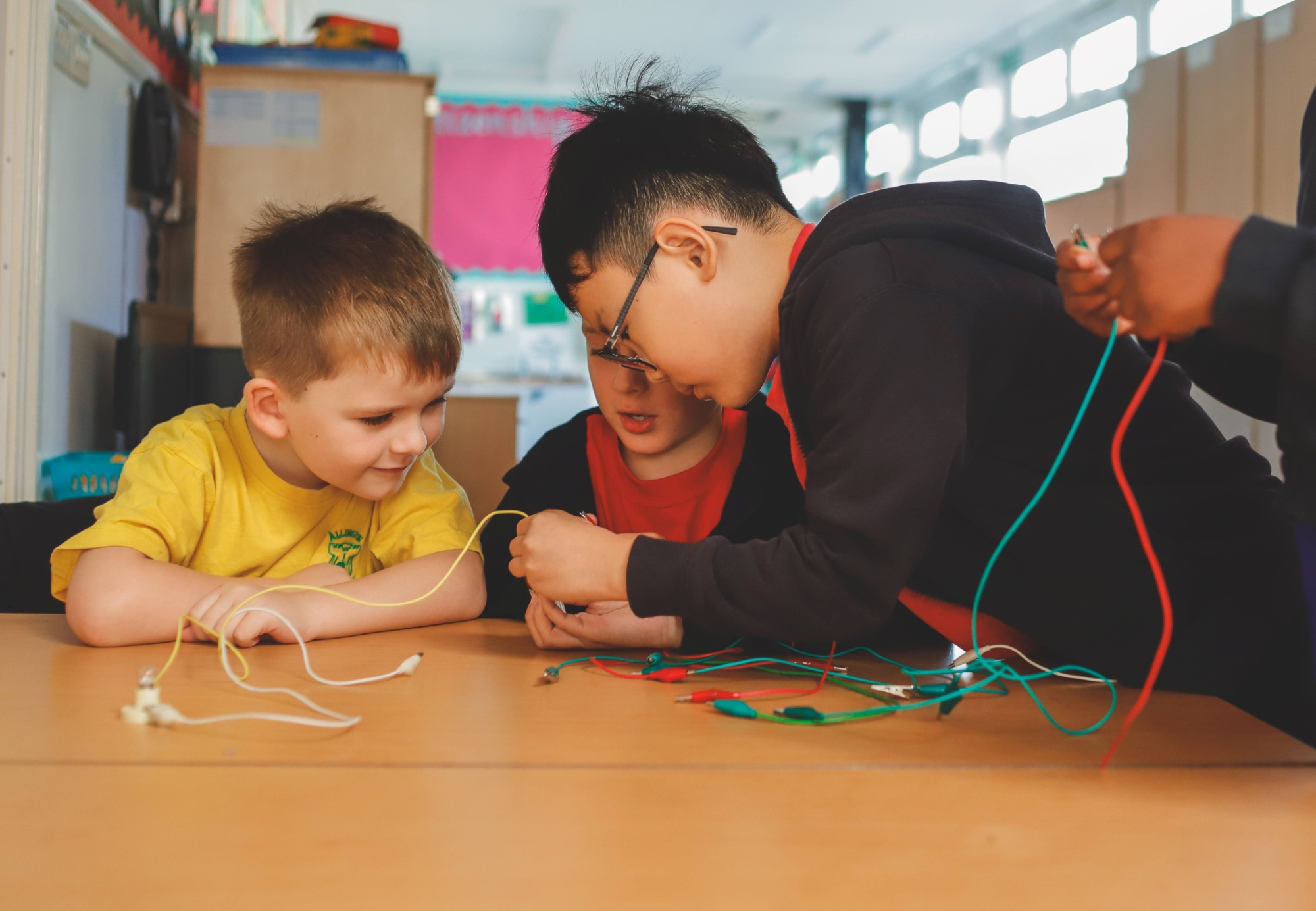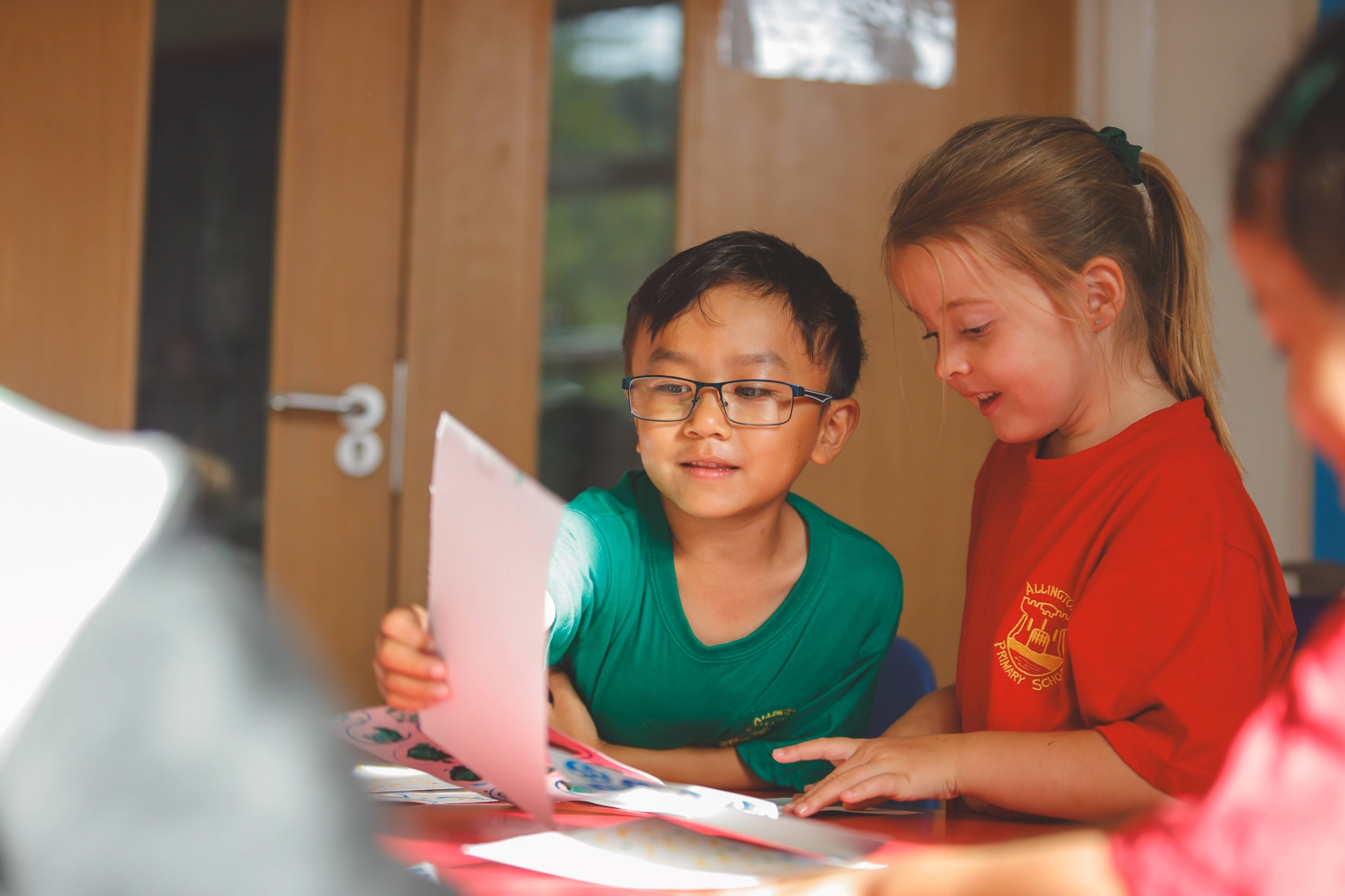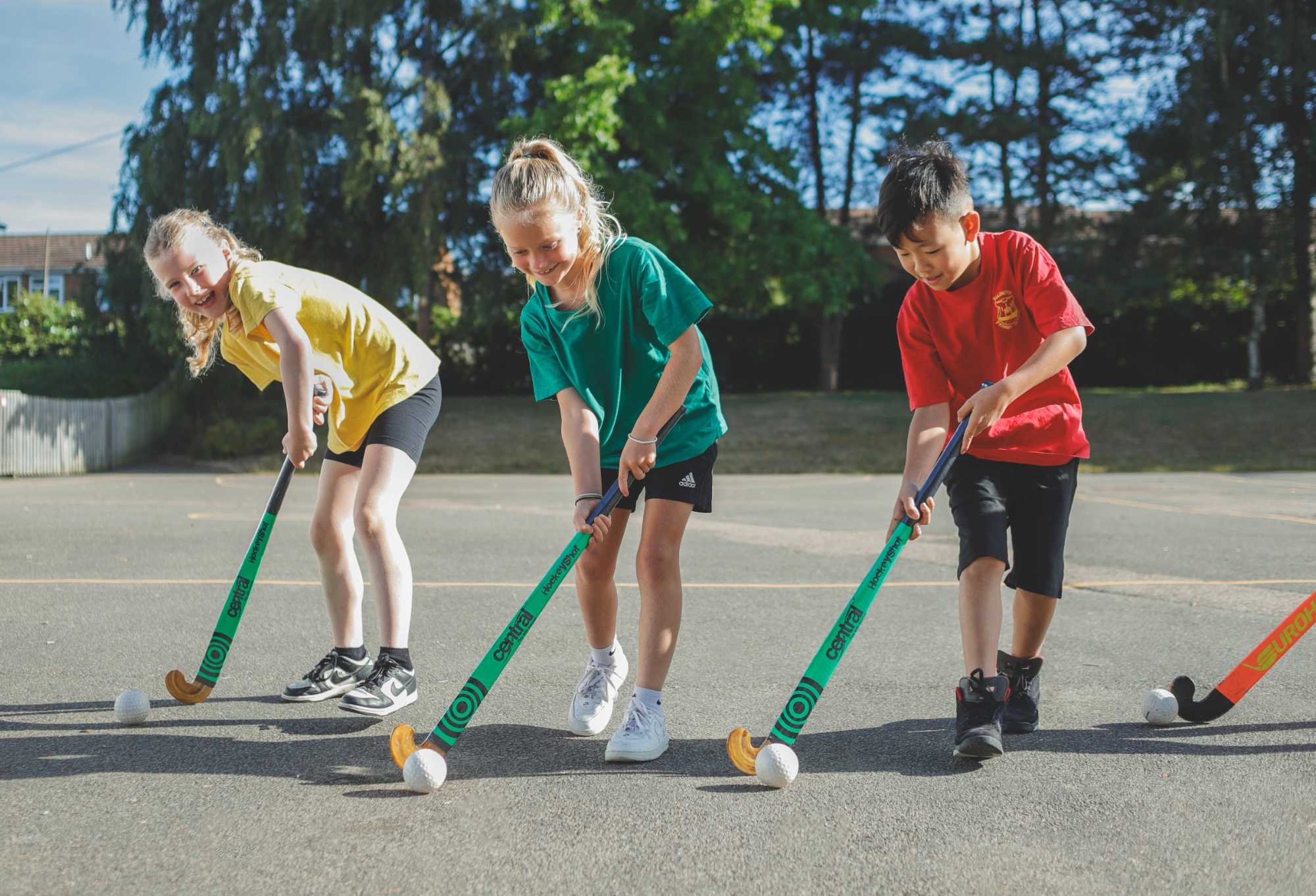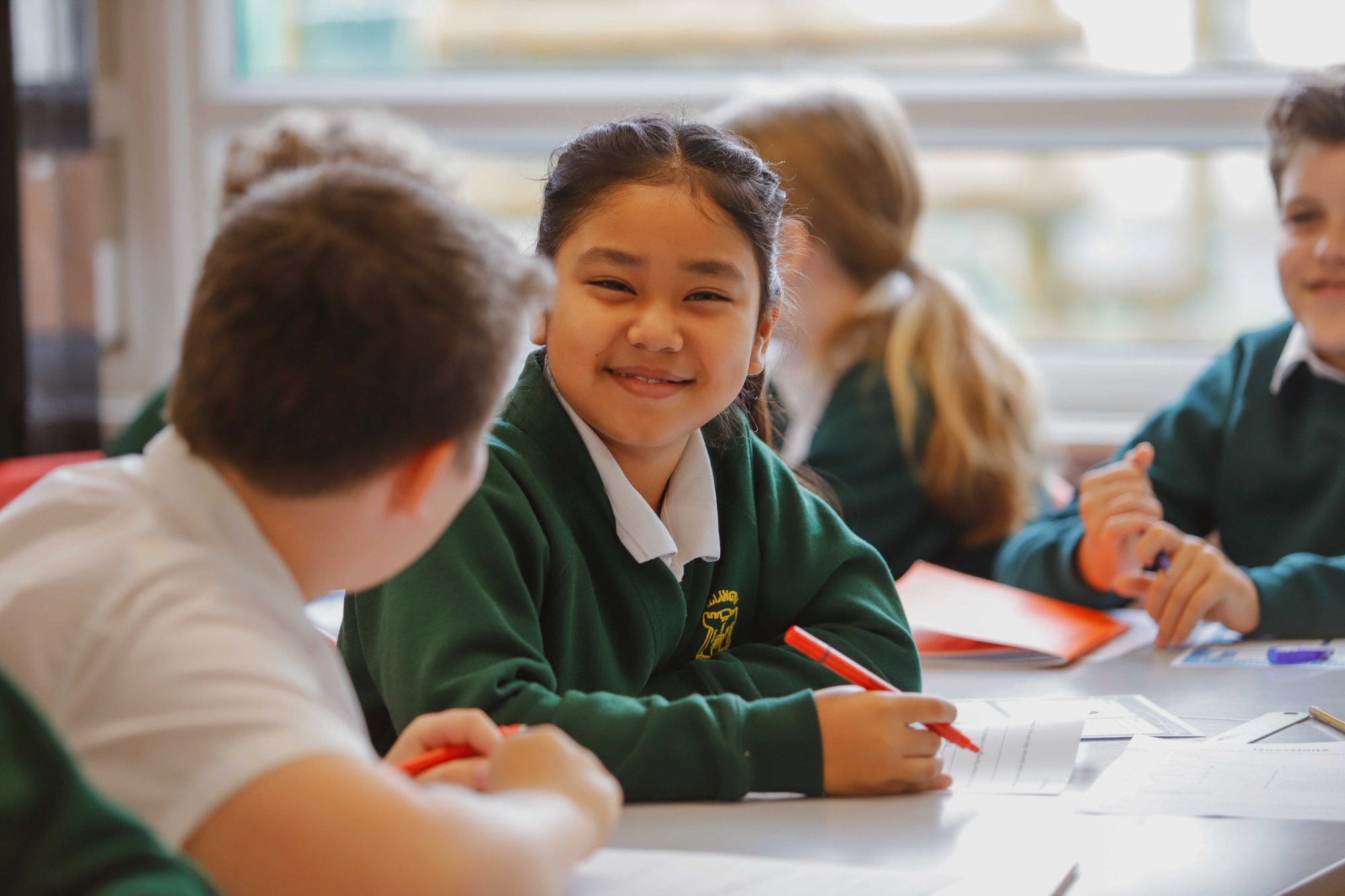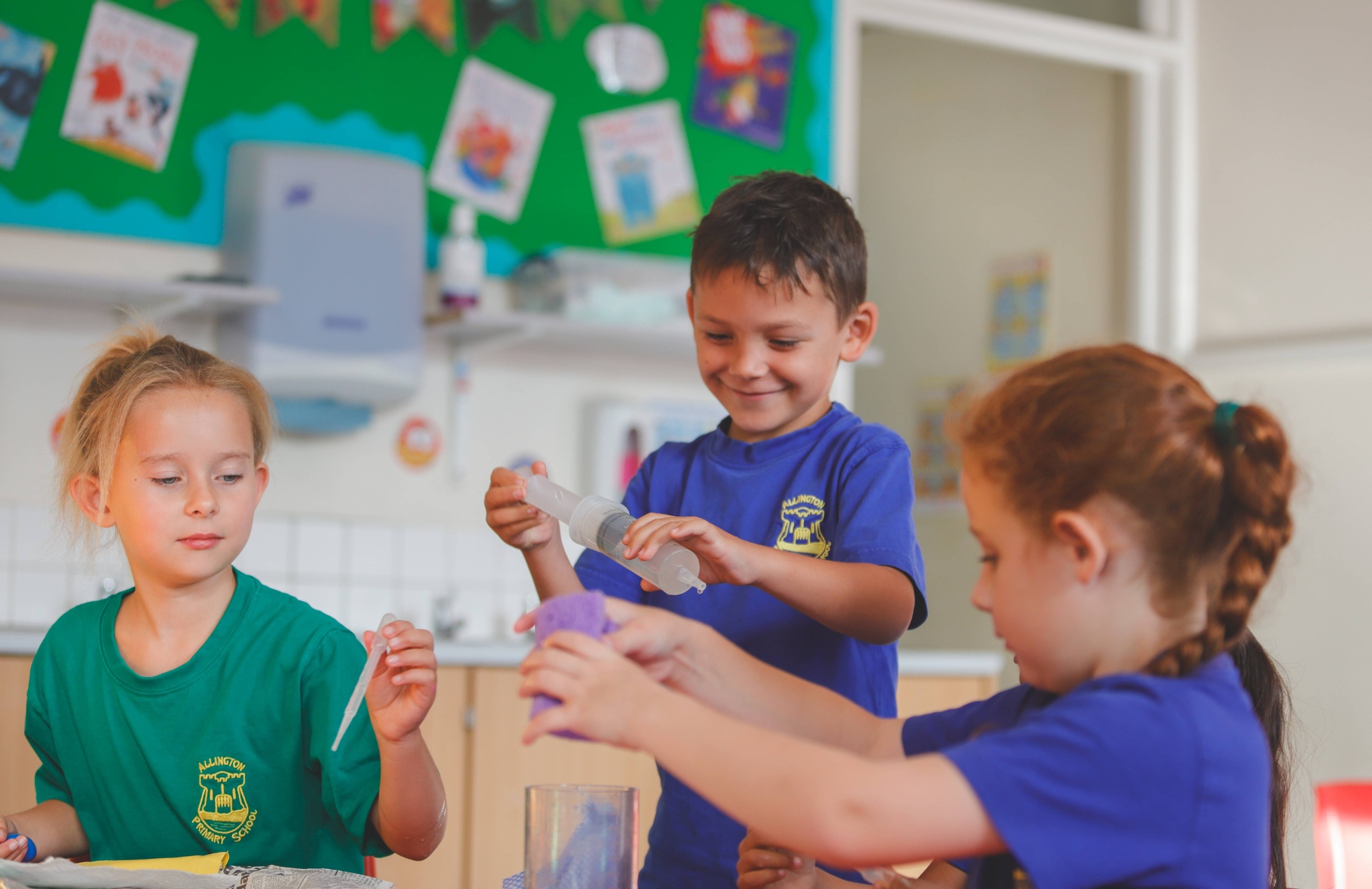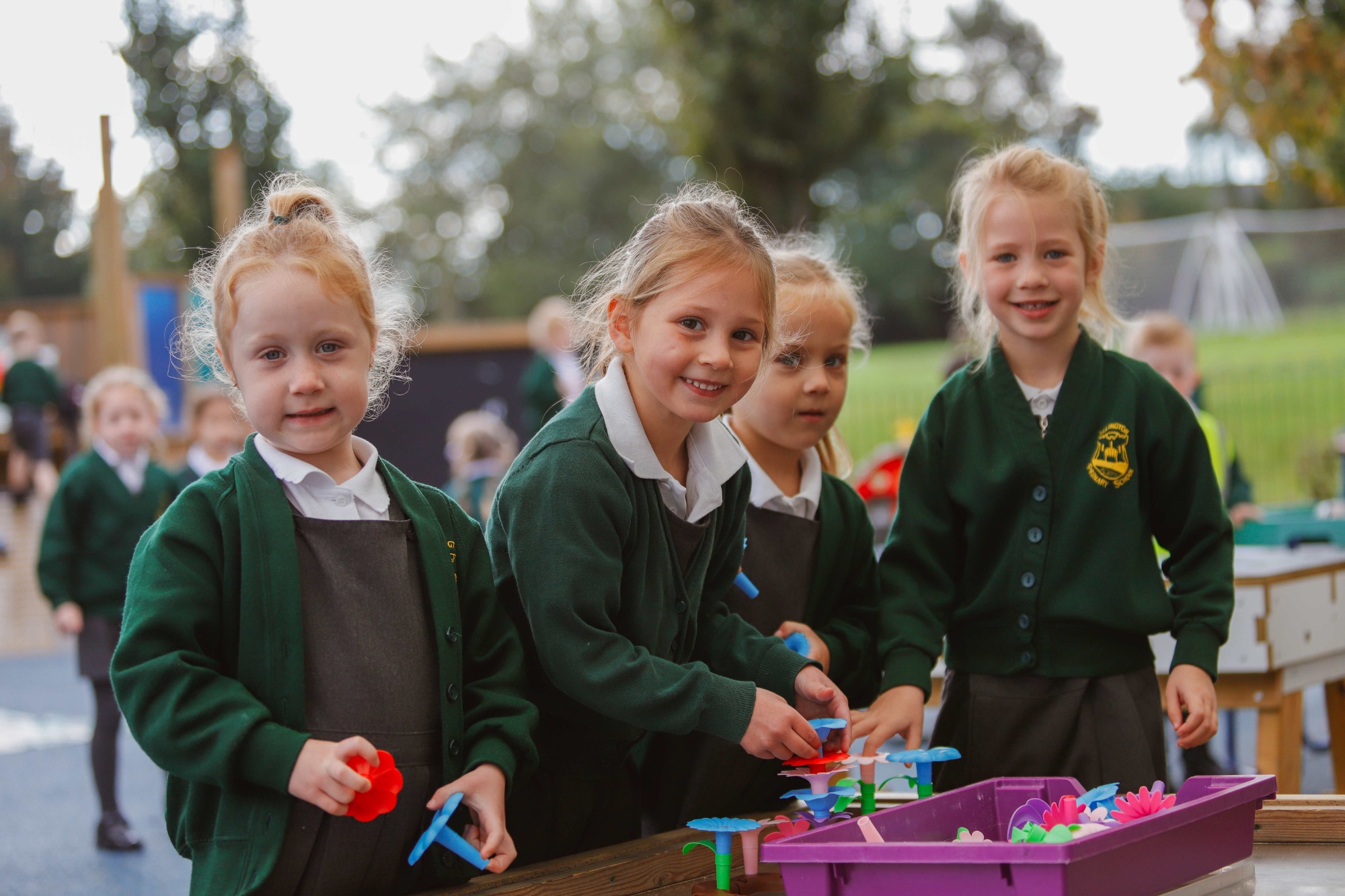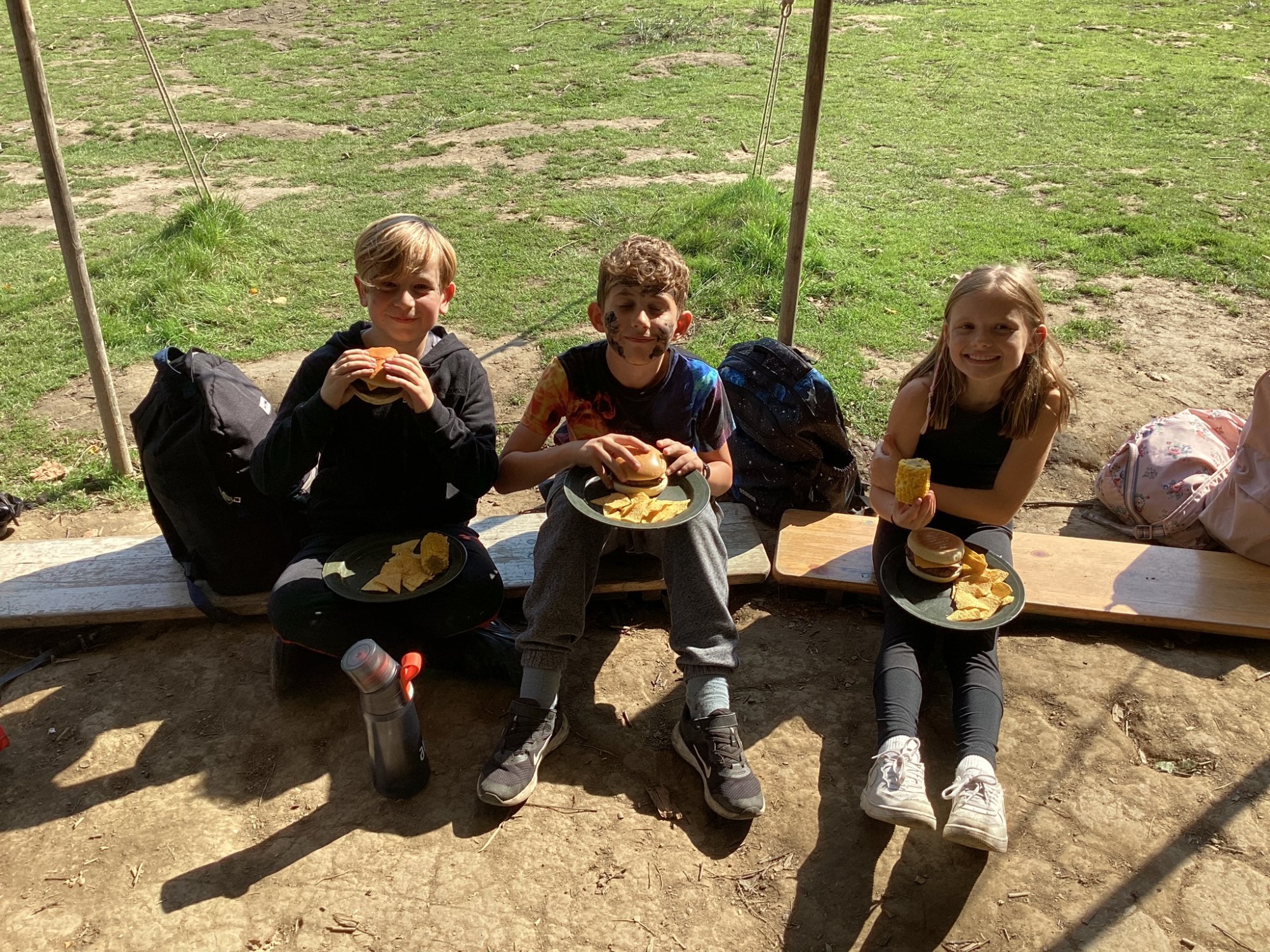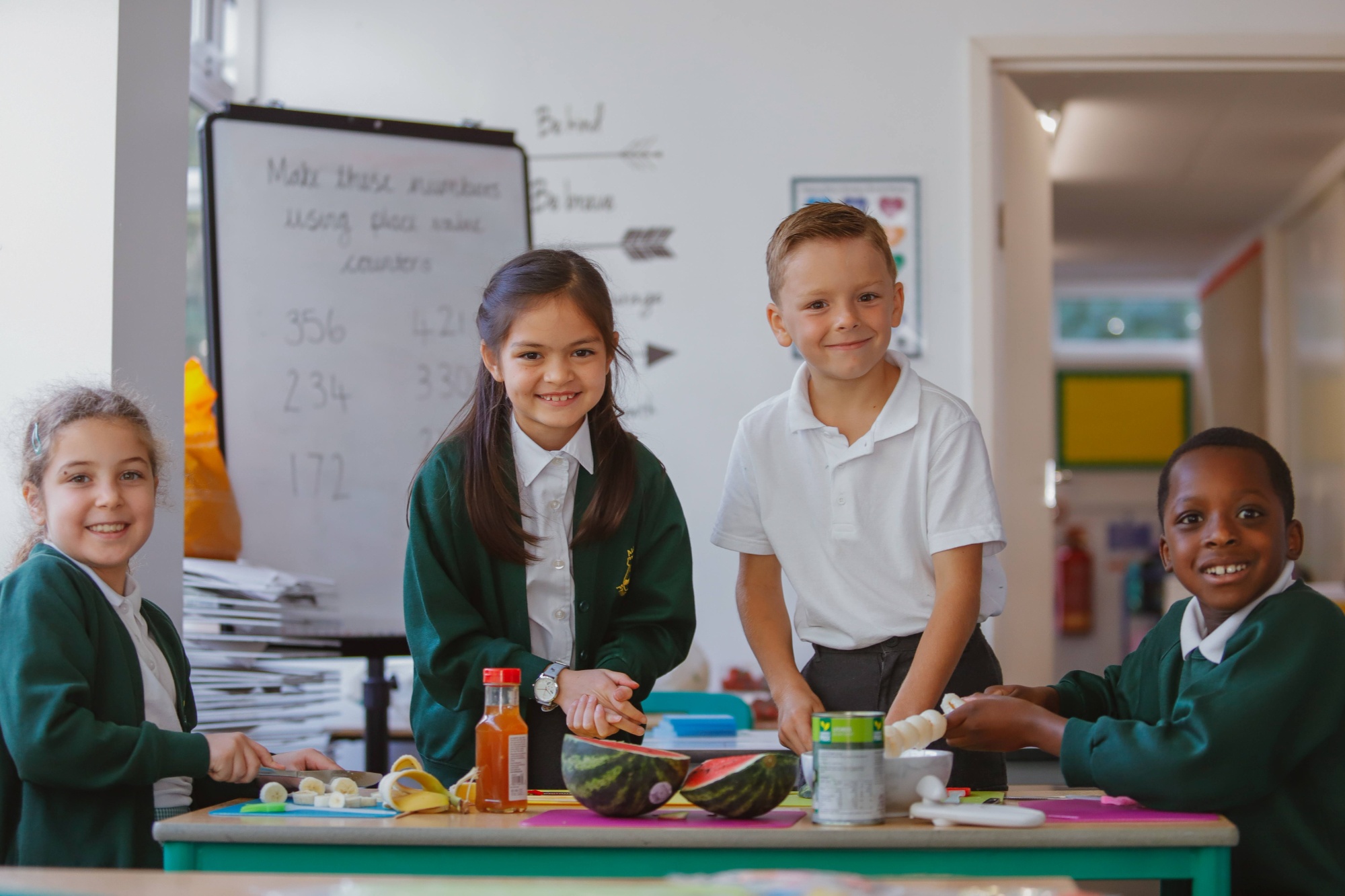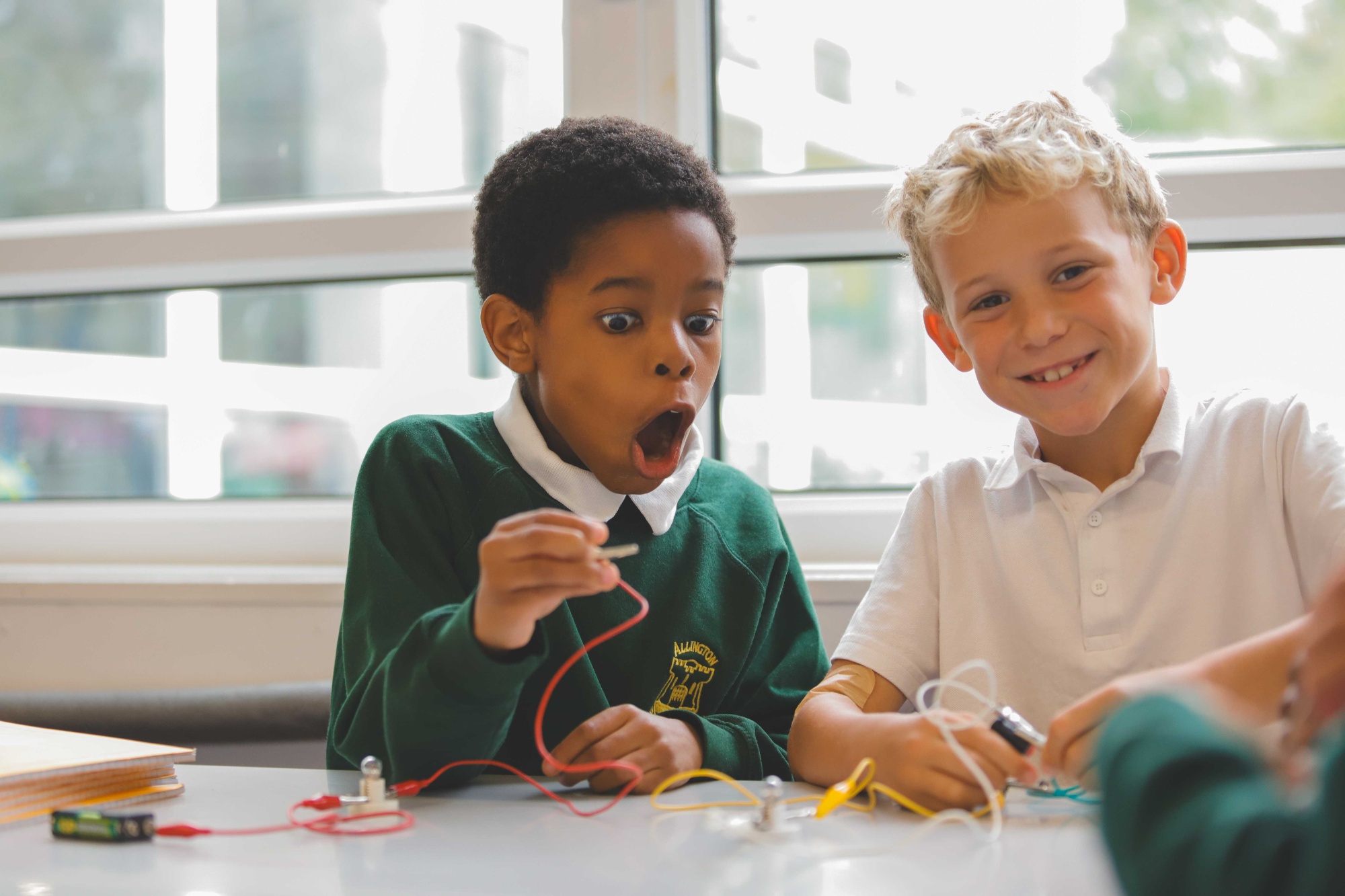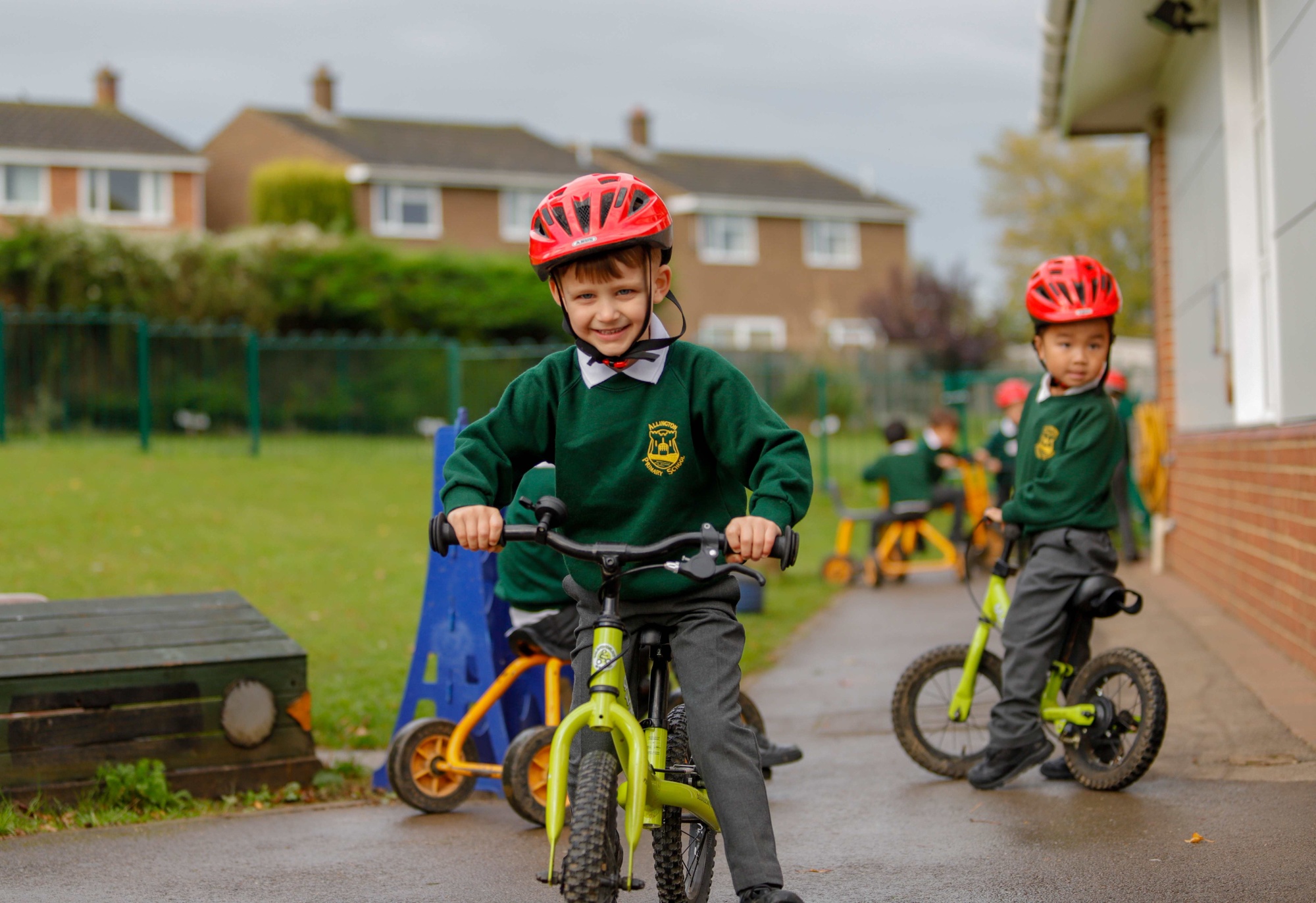Curriculum
As a school community, we believe our children possess unique gifts and qualities; as such they have the right to succeed, recognise their own greatness, and develop into the best versions of themselves in a respectful and nurturing environment. Our school ethos is firmly rooted in our values with a ‘love of learning’ being the foundation of everything we do. We aspire for our curriculum to enable our children to leave us with a rich and detailed understanding of the world and their place within it. We want them to develop a sense of ownership and belonging in the world, and to know that knowledge itself evolves over time and that they can contribute and be part of that evolution.
What do we want our children to learn?
At Allington Primary School we believe that learning is a journey and as such our curriculum is designed to be knowledge-rich, high-reaching, inspiring and purposeful and is one that meets the needs of all pupils. It is designed to promote learning and personal growth and development. It includes not only the formal requirements of the National Curriculum and the statutory framework for the Early Years Foundation Stage, but also the additional elements that we provide to enrich their learning experiences.
The curriculum allows children to develop effective interpersonal skills, build resilience and become creative, critical thinkers. It provides opportunities for children to develop as confident and successful learners, with high aspirations and a sense of personal responsibility. Our values underpin all that we do in school, fostering independence and thirst for learning. High expectations in speech, language and communication strengthen children’s ability to learn at a deeper level, allowing them to articulate their learning; demonstrate quality thinking and application of skills and knowledge.
Physical and mental wellbeing are prioritised within our curriculum allowing children opportunities to develop their spiritual, moral, social and cultural understanding, thus preparing them to make a positive contribution to their community and the wider society. Every child is recognised as a unique individual, and we celebrate and welcome differences within our school community.
Our curriculum enables teachers to drive the highest standards from learners so that they are well-prepared for the next stage in their educational journey and the future beyond. Our curriculum is relevant to children growing up in the Allington community but also broadens children’s experiences to enable them to become well-rounded individuals. The curriculum is cohesive and progressive, where both knowledge and skills are built upon year-on-year; but flexible enough to ensure that it evolves to remain relevant and stimulating. We aspire to provide an engaging learning experience for all our pupils and believe that childhood should be a happy, investigative and enquiring time in our lives where there are no limits to curiosity and there is a thirst for new experiences and knowledge. As such, teachers ensure pupils are inspired to have a thirst for learning; and through high levels of engagement, children leave our school with a sense of belonging to a tightly-knit community and a solid foundation for the continuation of their learning journey in secondary school.
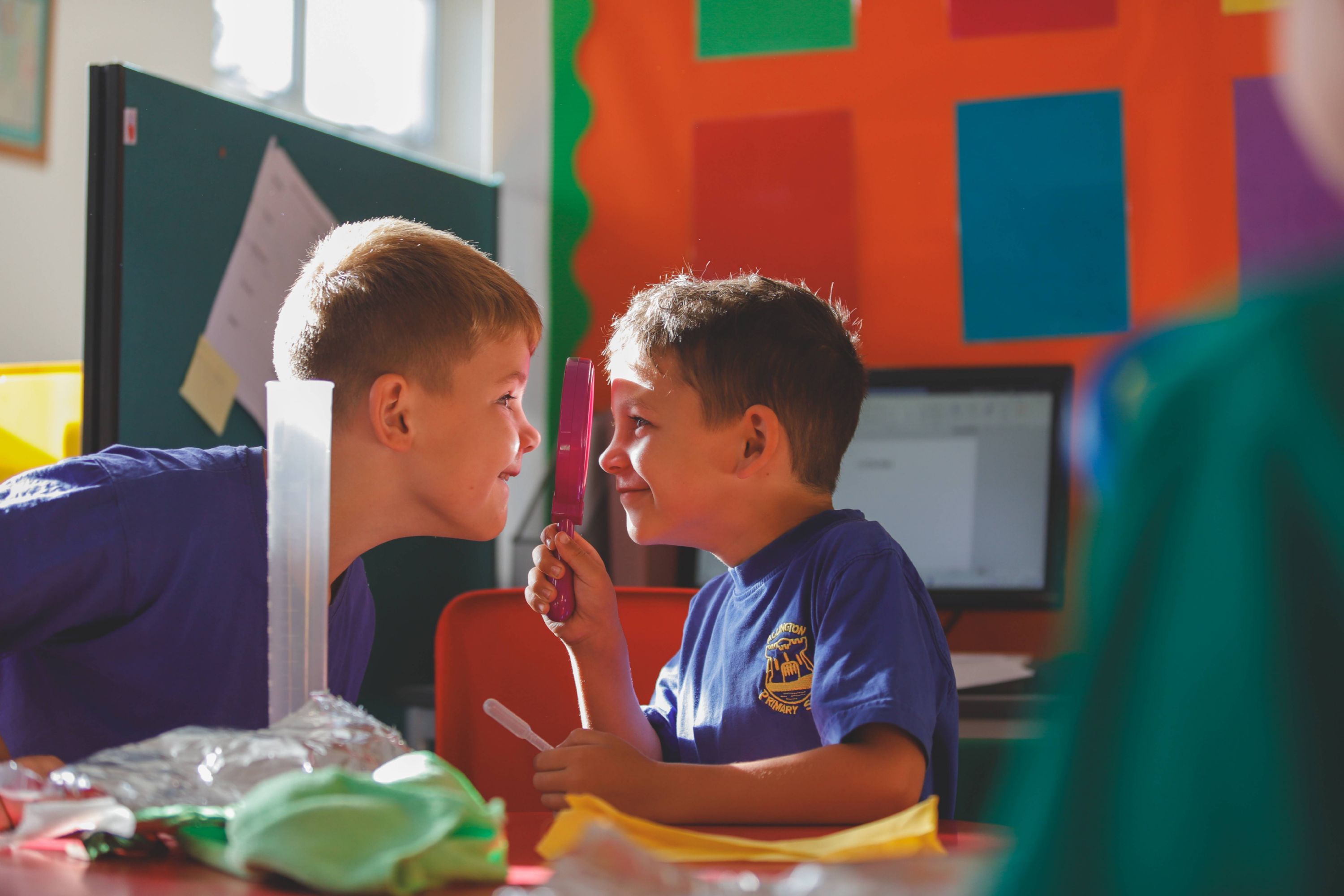
How do we facilitate their learning journey?
The curriculum incorporates the statutory requirements of the National Curriculum and other experiences and opportunities which best meet the learning and developmental needs of the children in our school, allowing them to flourish. Our curriculum is one where knowledge is built over time, and where children develop their understanding of concepts through the inter-connection of ideas and skills. The curriculum provides children with memorable experiences and opportunities from which they can learn, develop and apply a range of transferable skills.
The curriculum exposes the children to the key concepts of democracy, rule of law, individual liberty, mutual respect and tolerance of those with different faiths and beliefs. It is constructed with deliberate layering of cumulative knowledge as the children progress through the school, with references to past learning made explicit in order to build their understanding.
Age-related expectations combine the acquisition of knowledge and development of skills to create a purposeful and exciting learning journey for every child. The curriculum has high expectations to combine transferable skills, demonstrate a breadth of vocabulary and develop strong, meaningful cross-curricular links. Inviting classroom environments stimulate learners and engage them in quality thinking and reasoning. Explicit weekly and medium-term planning is responsive to children’s needs; incorporating holistic approaches to teaching and learning.
The school takes pride in providing a highly inclusive environment, where learners of all abilities demonstrate high levels of enjoyment in their education and most make very good progress in most subjects and areas of learning. Children at all levels are helped to achieve their potential. Those who are most able are challenged and supported through being offered tasks which provide opportunities for greater depth and those who present with a barrier to learning are encouraged and given targeted support to embed skills, to develop at their own pace or simply to learn in a style that best suits their individual needs.
Our detailed marking and feedback guidance is implemented consistently and provides opportunities for children to reflect on their learning and think deeply and carefully about their feedback.
Subject leaders play an important part in the success of the curriculum by leading a regular programme of monitoring, evaluation and review and the celebration of good practice contributes to the ongoing commitment to evolve and improve further. Subject leaders are given the opportunity to develop their own subject knowledge, skills and understanding, so they can support curriculum development and their colleagues throughout the school.
What difference does learning at Allington make?
Our children are very well-prepared for each stage of their learning journey. Practice across the school provides a strong foundation and opportunities for children to collaborate and develop social skills both indoors and out. The curriculum design provides a structured path for children to develop their knowledge and understanding over time, connecting ideas and taking opportunities to develop their own thoughts and ideas about the world they live in, and to see the world in a new way. The curriculum enables the children to question and challenge ideas, to voice their thoughts and opinions in an articulate way and to participate confidently in discussion.
Enjoyment of the curriculum promotes achievement, self-confidence and good behaviour. Children feel safe to try new things and present excellent behaviour for learning. High quality visits and visitors to the school enhance the curriculum and provide opportunities for broadening horizons and enriching the learning experience.
The curriculum organisation at Allington ensures that the needs of individual and small groups of children can be met within the environment of Quality First teaching, supported by targeted, proven interventions where appropriate. In this way it can be seen to impact positively on children’s outcomes.
Subject leaders monitor individual subjects: reviewing learning, evaluating pupil voice, providing individual feedback to move practice forward, celebrating positives and highlighting areas of development that can be addressed collaboratively. Our whole school team strengthens our ethos and vision as we work together to reflect upon our curriculum and revise it according to the needs of our school community. We don’t confuse coverage with progress when assessing. Learning is measured through the analysis of learners’ application of skills across the curriculum and through showing how the acquisition of knowledge is reflected in quality thinking and the demonstration of individual understanding.
Class teachers and subject leaders will be able to provided additional information about the curriculum if you cannot find it on this page.
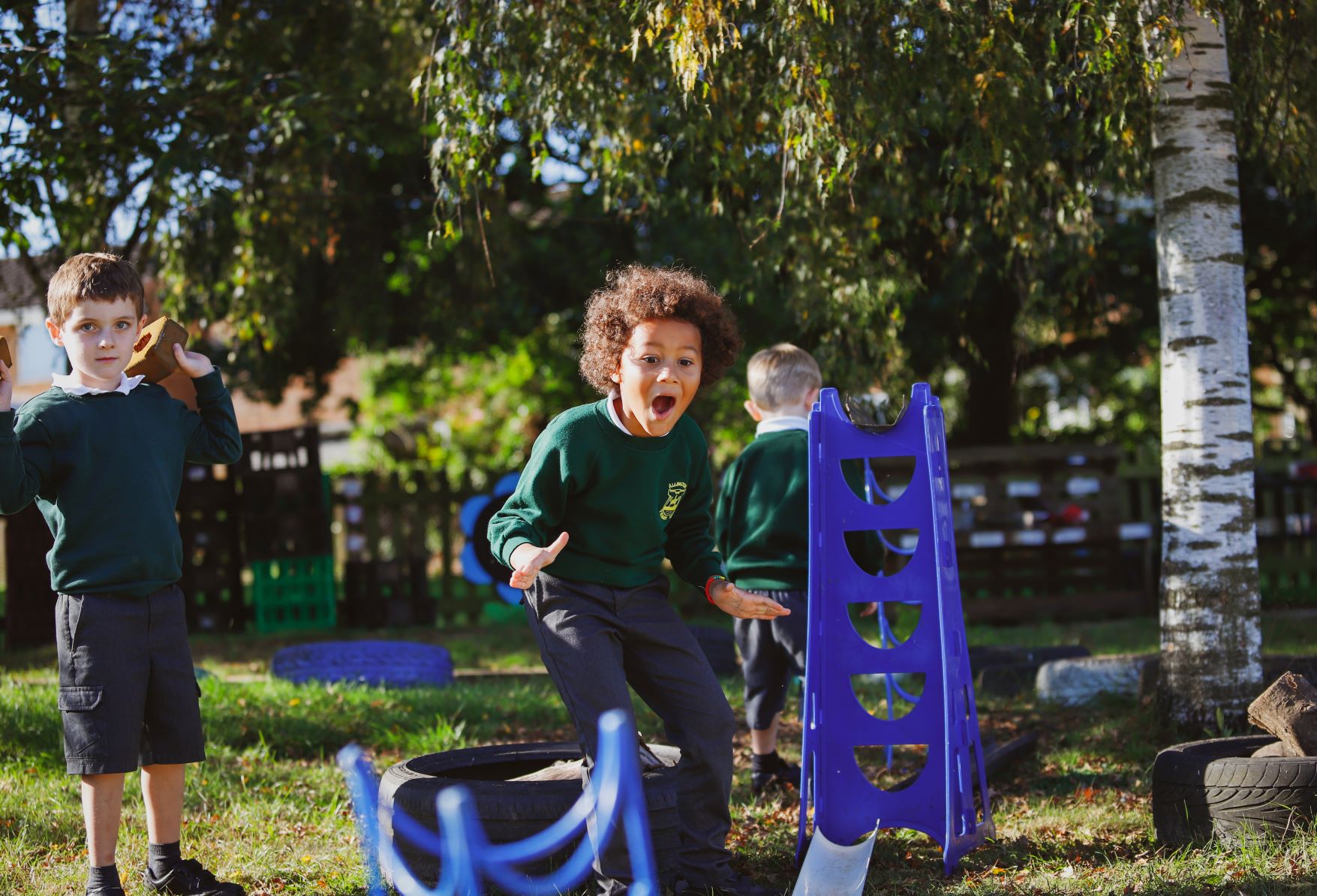
Reading and Phonics at Allington
Reading is at the heart of the curriculum at Allington. Throughout the school, a love for reading is nurtured through our use of the CLPE Power of Reading scheme, whereby high quality texts are used to develop language and writing skills, alongside reading skills. Children are provided with opportunities to develop their reading skills in directed Guided Reading sessions, as well as using opportunities across other curriculum areas.
At Allington, we use Read Write Inc to teach phonics. In Reception, the children start to learn individual letters and the sound that they make. They then follow a structured route as they work towards the expected standard in Year 1 (which is assessed in the Year 1 Phonics Screening Check) and the National Curriculum expectations for word reading through decoding, by the end of Key Stage 1. In Read Write Inc lessons, children learn to read accurately and fluently with good comprehension. They learn to form each letter, spell correctly and compose their ideas step-by-step.
Throughout the programme, children learn the English alphabetic code: the 150+ graphemes that represent 44 speech sounds. (A grapheme is a letter or letters that make a sound). The children will rapidly learn sounds and the letter, or groups of letters that they need to represent them in Speed Sound lessons. Simple and enjoyable rhymes help the children to grasp the letter-sound correspondences. This learning is taught and consolidated every day. High frequency words that are not phonically regular are taught as Red words and are practised frequently. We also have a soft toy frog called Fred who helps us to learn our sounds with games.
Lively phonic books are closely matched to the children’s increasing knowledge of phonics and Red Words so that, early on, they experience plenty of success. Repeated readings of the texts support their increasingly fluent decoding. Teachers will read aloud and discuss picture books with similar themes to those in the Storybooks, so the children will build up knowledge ready for the next book. When reading, the children will read the story three times. On the first read, children will focus on accurate word reading; the second, on developing fluency; and the third, on comprehension. Fluency and comprehension increase with each repeated reading. The children are assessed continuously in phonics to ensure that they progress and are well supported. The progression in phonics document is attached below.
As early readers in Key Stage 1, we closely match home reading books to the phonics sounds being taught. Reading for pleasure is promoted in our Early Years and KS1 and children also enjoy choosing high quality picture books from our library to share at home. From Key Stage 2, children are encouraged to develop as independent readers, discovering favourite authors amongst the well-stocked shelves in the school library.
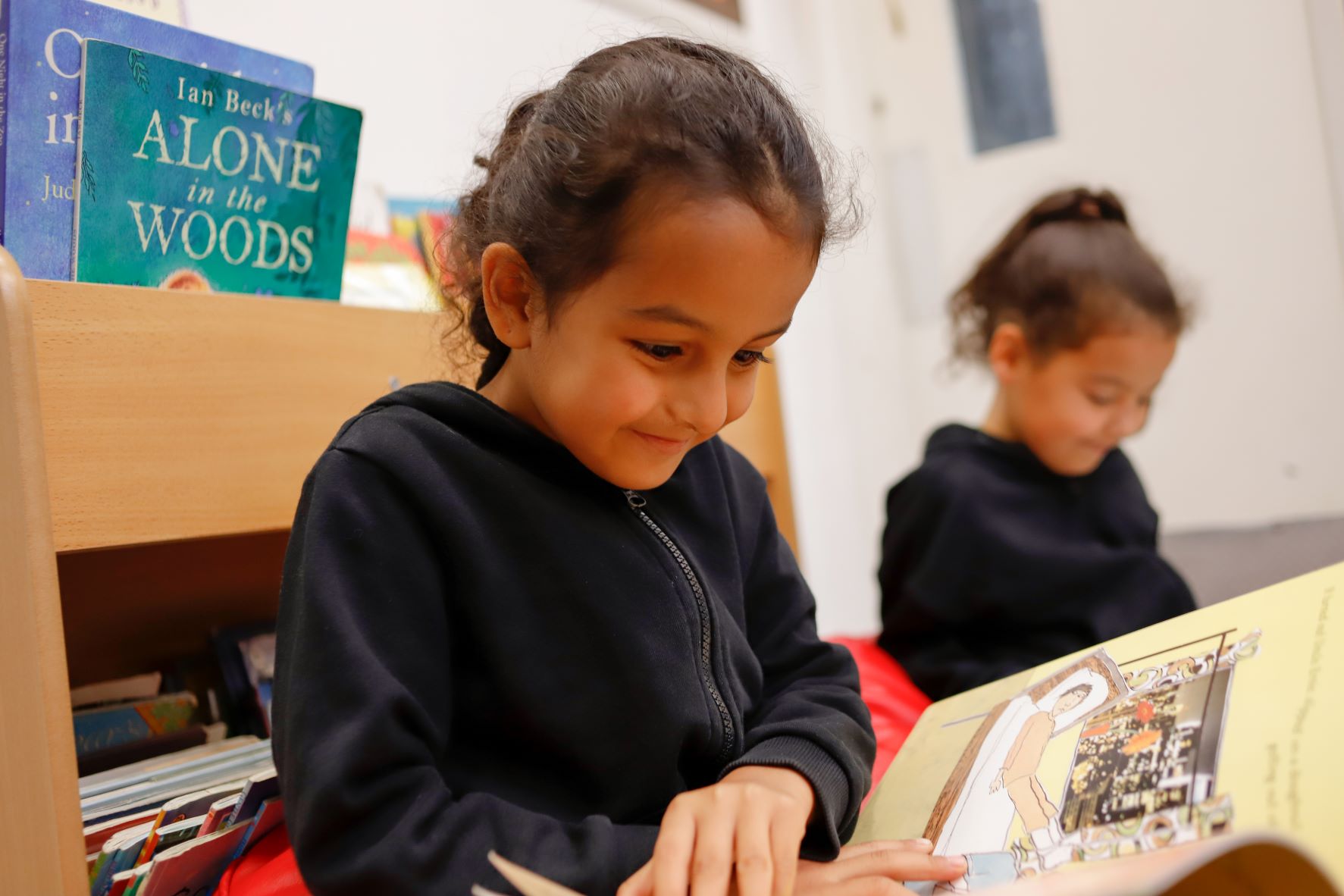
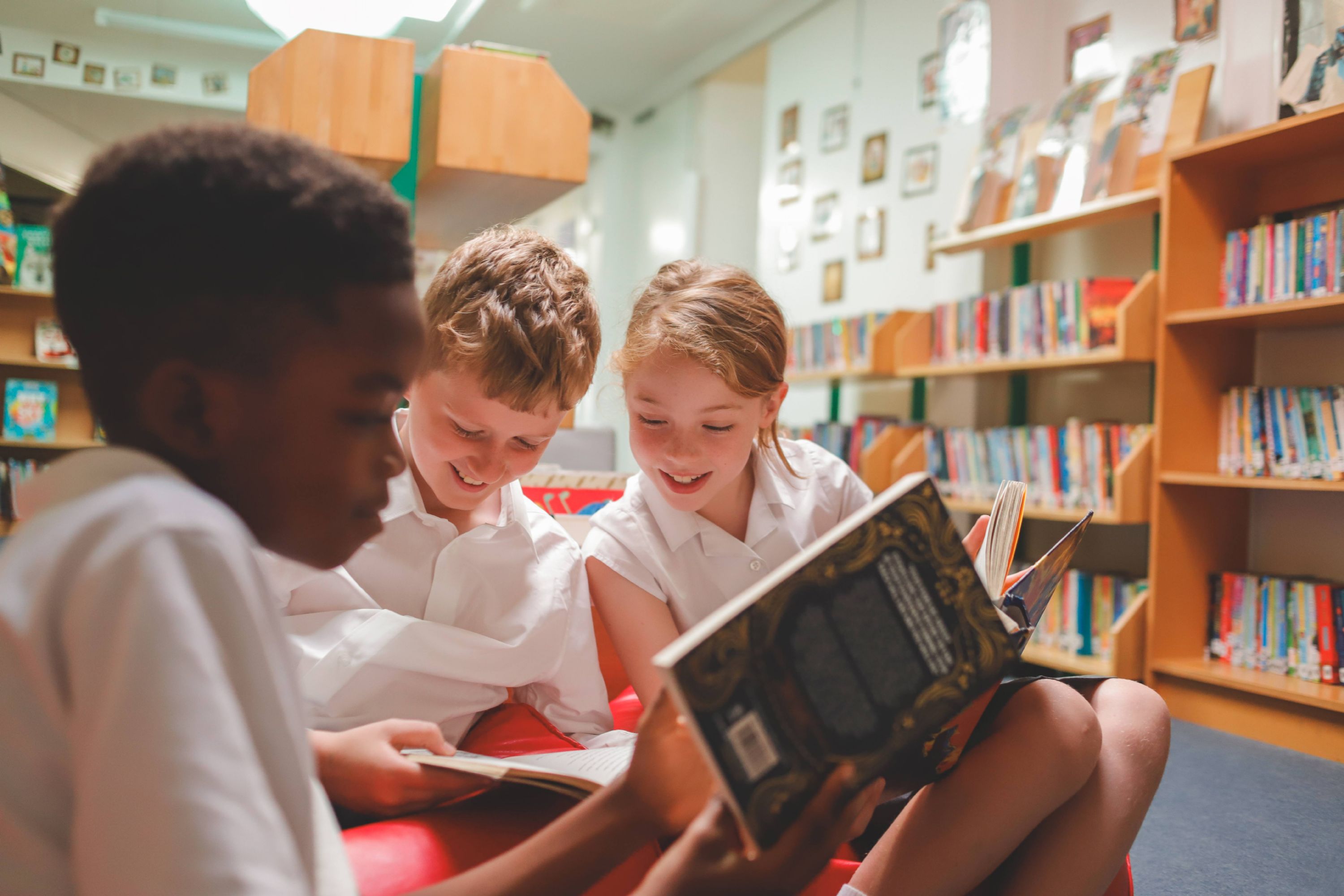
Maths at Allington
The teaching of Maths at Allington Primary School follows the programmes of study and objectives set out in the National Curriculum. The objectives are grouped into units of study and the mathematical skills of fluency, reasoning and problem-solving are taught throughout each unit. Please see below for the calculation guidance. We have also prepared some videos to help support your understanding of our approach to Maths. These are available in the tab at the side - Maths support. Further information about the maths curriculum can also be found in our curriculum document. Please see the link below.
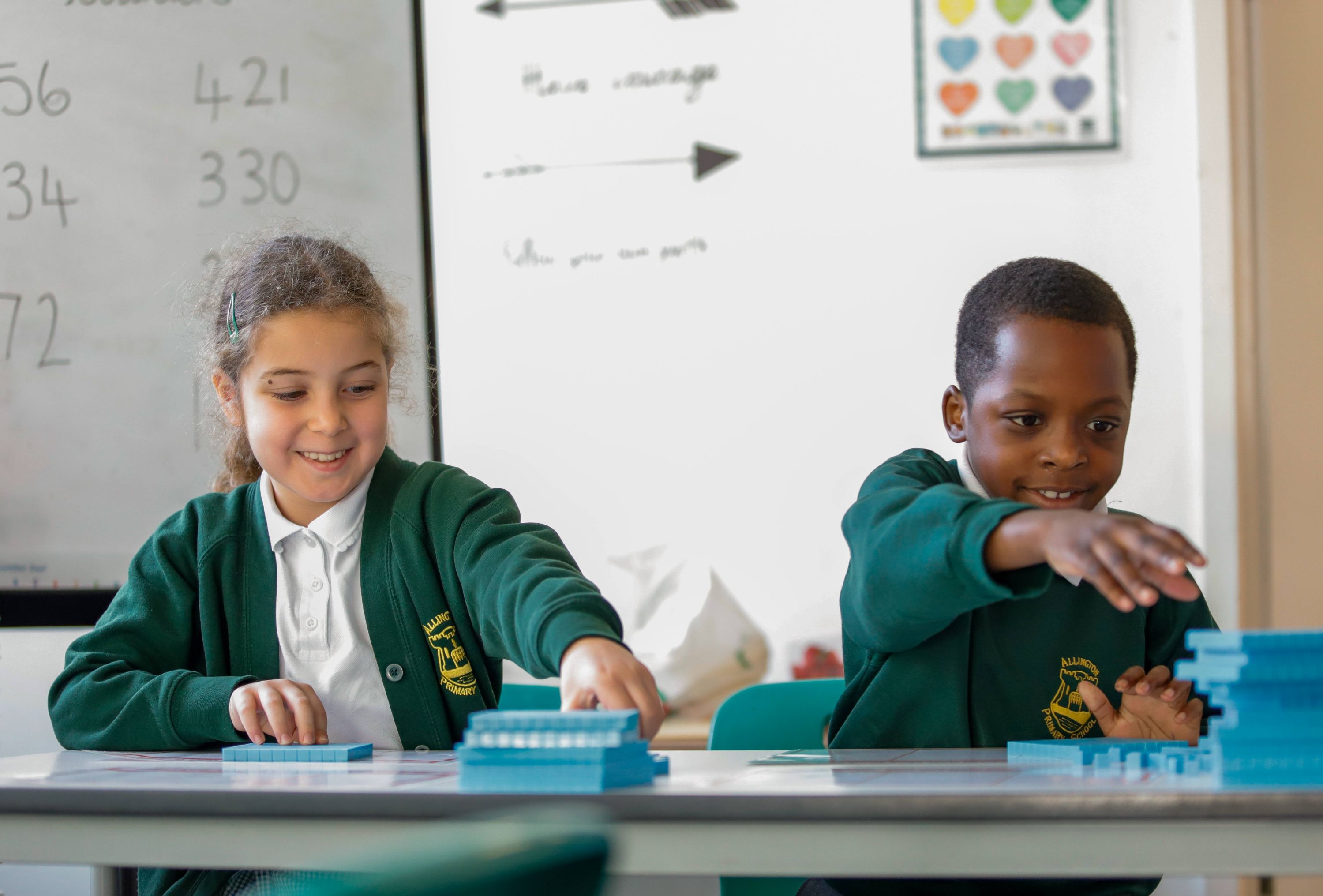
Swimming at Allington
Swimming lessons at Allington are targeted at one year group and take place during the summer terms. The table below details the proportion of children in Year 6 who met the national curriculum requirement for swimming in the academic year 2023-24:
| Meeting national curriculum requirements for swimming and water safety | % of cohort |
| What percentage of your current Year 6 cohort swim competently, confidently and proficiently over a distance of at least 25 metres? | 84 % |
| What percentage of your current Year 6 cohort use a range of strokes effectively [for example, front crawl, backstroke and breaststroke? | 78 % |
| What percentage of your current Year 6 cohort perform safe self-rescue in different water-based situations? | 73% |
| Schools can choose to use the Primary PE and Sport Premium to provide additional provision for swimming but this must be for activity over and above the national curriculum requirements. Has it been used in this way? | No |
Sport is an important part of our curriculum and last year we were very proud to be awarded the School Games Gold award.
